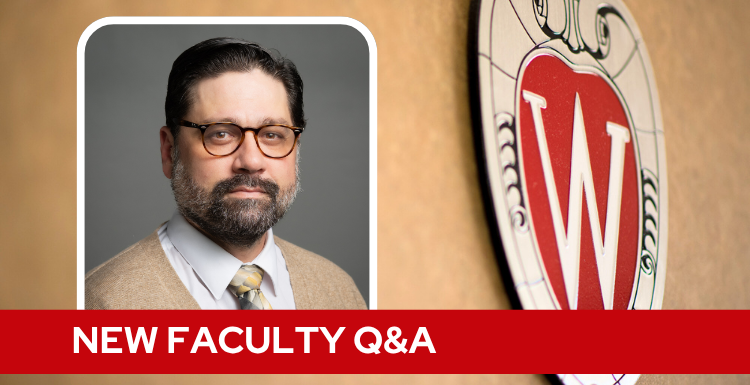Get to know Dr. William Bracamonte

William Bracamonte, MD, PhD
Clinical Assistant Professor
Rheumatology
What is your primary professional focus as it relates to our mission areas (clinical, research and/or medical education)?
I consider clinical practice, research, and teaching to be complementary. During my career I have tried to balance clinical practice/patient care, basic and translational research, and education at different levels, as I strongly believe those are activities that feed each other, and a comprehensive vision and practice is in the best interest of patients, colleagues and myself.
What drew you to UW–Madison and the Department of Medicine?
The University of Wisconsin (UW) is my alma mater. I came to the United States about 15 years ago to pursue a PhD in immunology, after being already an internist and faculty in Venezuela. I ended up rebuilding my training and career in the U.S.; and returning to UW as faculty and settling in Madison—the best city in the world—was a long sought dream, finally become reality.
What are you most excited about during your first year with the department in this role?
I am excited about being able to combine inpatient internal medicine practice with outpatient rheumatology and being able to contribute to patient care and our fellows' learning process. I am also very enthusiastic about upcoming projects regarding autoimmune side-effects of cancer immunotherapy—an exciting, novel field in which I have developed expertise in recent years, and which UW is pioneering in terms of clinical care.
What do you enjoy doing when you’re not working?
I have many interests, particularly playing and building guitars, 60s-70s rock music, cooking, and woodworking.
Favorite piece of advice from a mentor or inspiring figure in your life?
My internal medicine mentor in Venezuela (Dr. Jose Luis Botana) seeded in me the passion for diagnostic medicine and comprehensive approach to clinical practice. My immunology mentor at UW (Dr. William Burlingham) taught me many things, but I always remember the time he told me, "It is OK to say ‘I do not know.’ What is really important is to be able to propose a testable hypothesis." Those two remarkable mentors made me approach science with clinical perspective, and to practice medicine with a PhD mentality.